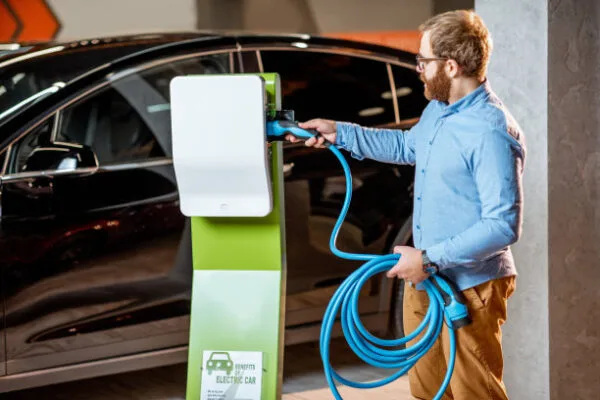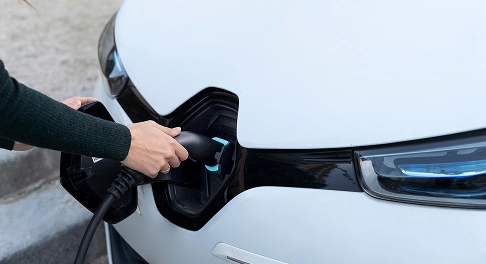The electric vehicle (EV) charging infrastructure market in Europe is experiencing unprecedented growth. As experienced EV Charging Cable Manufacturers and DC EV Charger Manufacturers, we’ve witnessed firsthand the transformation of this industry.
This comprehensive guide will walk you through the process of starting an EV charging station business in Europe, with a special focus on the Netherlands and Belgium markets.

EV Charging Station Business Market Analysis and Opportunities
Current Market Status
Before starting any business, we need to get an idea about the current market. Here are details about current market trends.
Growth Trends
- Europe’s EV charging station market is expected to grow at a CAGR of 29.4% through 2030
- The Netherlands leads Europe in charging point density, with over 90,000 public charging points
- Belgium has committed to installing 35,000 new charging points by 2025
Market Drivers
- Government Initiatives
- EU’s mandate for 100% zero-emission new cars by 2035
- National incentives for charging infrastructure development
- Local municipality support programs
- Consumer Demand
- Rising EV adoption rates (over 20% market share in both countries)
- Increasing demand for convenient charging solutions
- Growing preference for fast-charging options
Business Models in the Market
- Public Charging Stations
- Street-side charging points
- Municipal parking facilities
- Shopping center installations
- Private Commercial Stations
- Workplace charging solutions
- Fleet charging facilities
- Hotel and restaurant locations
- Residential Charging Networks
- Multi-dwelling unit installations
- Home charging equipment distribution
- Subscription-based services
Key Success Factors
- Location Strategy
- High-traffic areas
- Residential zones with limited private parking
- Commercial districts with long-term parking
- Technical Infrastructure
- Reliable Electric Vehicle Cable Suppliers
- Certified EV Charging Connector Manufacturers
- Quality DC EV Charger Manufacturers
- Operational Excellence
- Professional installation services
- Regular maintenance protocols
- Customer support systems
Market Entry Considerations For This Business
Here the considerations are divided into some parts based on the location. Carefully check them before you start.
The Netherlands
- Dense urban areas prioritization
- Integration with existing networks
- Municipal partnership opportunities
Belgium
- Regional expansion strategies
- Cross-border corridor development
- Urban-suburban coverage planning
Supplier Or Manufacturer Selection For The Business
Choosing the right supplier is essential for building a successful EV charging station. Focus on:
- Certification: Ensure CE marking and IEC standards compliance.
- Quality: Partner with providers offering durable charging cables, connectors, and advanced features like smart metering.
- Support: Opt for suppliers with detailed documentation, training, and reliable after-sales service.
- Scalability: Work with suppliers capable of supporting future expansion.
- Value: Prioritize cost-effective solutions without compromising quality.

SPvolt is your trusted partner for certified, high-quality EV charging products. With advanced technology, long-term warranties, and expert support, SPvolt ensures your business is equipped to meet Europe’s growing EV demands.
Competitive Analysis For EV Charging Station Business
- Existing Players
- Major network operators
- Local charging point operators
- Energy utility companies
- Market Gaps
- Underserved residential areas
- Fast-charging availability
- Specialized fleet services
- Competitive Advantages
- Technology differentiation
- Service quality
- Pricing strategies
Legal Requirements and Technical Specifications For EV Charging Station in Europe
EU-Level Regulations
- Alternative Fuels Infrastructure Regulation (AFIR)
- Minimum coverage requirements
- Payment system standards
- Accessibility guidelines
- Technical Standards
- IEC 61851: Electric vehicle conductive charging system
- IEC 62196: Plugs, socket-outlets, and vehicle connectors
- ISO 15118: Vehicle to grid communication interface
Country-Specific Requirements
- The Netherlands
-
-
- Network operator permits
- Environmental impact assessments
- Local municipality approvals
- Grid connection requirements
-
- Belgium
- Regional authorization processes
- Safety certification requirements
- Grid capacity assessments
- Urban planning permits
Technical Specifications and Equipment Selection
Charging Station Types
- AC Charging Stations
- Level 2 charging (up to 22kW)
- Requires certified EV Charging Cable Manufacturer products
- Type 2 connectors (standard in Europe)
- Key specifications:
- Operating voltage: 230V/400V AC
- Current ratings: 16A-63A
- IP55 protection rating
- Operating temperature: -30°C to +50°C
- DC Fast Charging Stations
- Power output: 50kW to 350kW
- Requires specialized DC EV Charger Manufacturer equipment
- CCS2 connector standard
- Key specifications:
- Operating voltage: up to 1000V DC
- Current ratings: up to 400A
- Enhanced cooling systems
- Advanced safety features
Essential Components
- Charging Cables and Connectors
- Source from reliable Electric Vehicle Cable Supplier
- Required specifications:
- Double-layer electroplating technology
- TPE/TPU cable materials
- 10,000+ insertion cycle durability
- Temperature monitoring capabilities
- Power Management System
- Load balancing capabilities
- Smart metering integration
- Remote monitoring features
- Backup power systems
- Payment and Authentication Systems
- RFID card readers
- Mobile app integration
- Credit card terminals
- Secure payment processing
Safety and Protection Features
- Electrical Safety
- Overcurrent protection
- Ground fault monitoring
- Surge protection
- Emergency stop systems
- Environmental Protection
- IP55 minimum enclosure rating
- UV-resistant materials
- Anti-vandalism features
- Weather protection systems
Infrastructure Requirements For This Business
Power Supply Considerations
- Grid Connection
- Power capacity assessment
- Transformer requirements
- Backup power options
- Load management systems
- Cable Infrastructure
- Underground conduit systems
- Cable protection measures
- Future expansion capacity
- Maintenance access points
Site Planning
- Physical Layout
- Space requirements per charging point
- Traffic flow optimization
- Accessibility compliance
- Future expansion zones
- Supporting Infrastructure
- Lighting systems
- Weather protection
- Signage and markings
- Security measures
Quality Control and Maintenance System For The Business
Installation Quality Control
- Pre-Installation
- Site assessment
- Component verification
- Safety plan development
- Compliance checks
- Installation Process
- Professional installation teams
- Certified equipment usage
- Documentation requirements
- Testing protocols
Maintenance Programs
- Preventive Maintenance
- Regular inspections
- Component testing
- Software updates
- Cable and connector checks
- Reactive Maintenance
- Emergency response procedures
- Spare parts inventory
- Technical support systems
- Repair documentation
Technical Partner Selection
Equipment Supplier Criteria
- Certification Requirements
- CE marking compliance
- IEC standards adherence
- National certifications
- Quality management systems
- Support Services
- Technical documentation
- Installation support
- Training programs
- Warranty coverage
Conclusion
Starting an EV charging station business in Europe is a rewarding opportunity in the fast-growing sustainable mobility sector. By understanding market trends, meeting regulatory requirements, and partnering with reliable suppliers, you can establish a robust and profitable infrastructure.
Ready to power the future of EV charging? Partner with SPvolt for certified, high-performance equipment and expert support tailored to your needs. Contact us today to drive your business forward!



